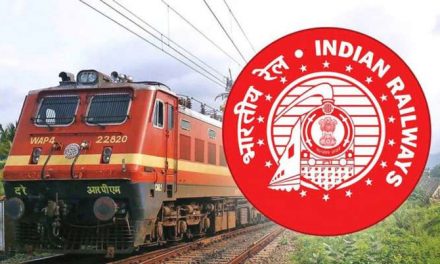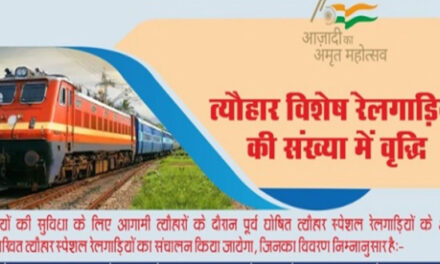No. RSCWS/ CHD / Memo 7th CPC Emp Com/2016-3
Dated: 6-2-2016
1. Cabinet Secretary, Government of India &
CHAIRMAN, EMPOWERED COMMITTEE OF
SECRETARIES ON 7TH CPC, Cabinet Secretariat,
Rashtrapati Bhawan, New Delhi – 110 004
CC to:cabinet@nic.in
2. ALL MEMBERS OF EMPOWERED COMMITTEE ON 7TH CPC
Dear Sir,
Subject: Recommendations of the 7th Pay Commission relating to Pension & Retirement Benefits
We would like to draw your kind attention to the following major points & serious inadequacies & consequential serious injustice to the Pensioners. We earnestly request you for consideration of the following issues:
1. MULTIPLE FACTOR (REF: PARA 10.1.67):
I) The 7th Pay Commission has very unjustly & arbitrarily recommended the multiple factor of 2.57 for fixation of Pay & Pension. It is tantamount to less than 14.3% rise of emoluments as on 1-1-2016 (with expected DA of 125%) as against over 21% rise proposed by 6th CPC. This is especially very much unjustified in view of much high price rise in the last 10 years.
II) Long pending demand may please be accepted for merger of DA for fixing the Revised Pay & Pension;
III) It is, therefore, requested that the multiple factor should, therefore, be raised to 3.15 times of Sixth CPC Basic Pay & Pension if the merger of DA is agreed to or at least to 2.65 if merger of DA is not agreed to.
IV) The Minimum wage of Rs.18000 proposed by 7th Pay Commission is based on Dr Aykroyed formula for Minimum Need Based Wage. This has already been overruled by the Supreme Court as it does not reflect the present day needs for Housing, Social obligations and Children Education etc. The Apex Court had already modified the said formula by adding appropriate weightage for these Factors – which may please be considered for fixing the Minimum Pay and the Pay at higher Levels as well as the Pension as based thereon.
2. PARITY OF PENSION (PARA (10.1.53 & 10.1.67):
a) We welcome the recommendation of 7th CPC and thank the COMMISSION for accepting the long pending demand of Parity between pre and post 7th CPC Retirees. However the method suggested by the Pay Commission for the above purpose, needs to be revised & simplified in view of the following reasons:
i) It may not be possible to implement this Option in many cases for fixation Revised Pension of Pre-2016 Pensioners in the absence of Service Records of the old Pensioners to check the number of increments earned in the Grade from which the Pensioner retired in cases where the Service Records of the oldPensioners are not available thus depriving them of the benefit of the same permanently or for many years till their records are rebuilt – which will be like groping in the dark;
ii) Basing of Pay Matrix & Pension on disproportionate Rise of Pay & Pension – given after 6th CPC – will be unjustified – as the rise given after 6th CPC was 3 times or more in PB 4 as against 2.26 times in PB 2 & PB 3;
iii) Using lower Index of only 2.57 at lower levels and 2.62 at Middle Levels as compared to 2.67, 2.72 and 2.81 at higher Levels of Posts will further accentuate the discrimination caused by the 6th CPC. The Index of 2.81 should be uniformly applied at all Levels.
iv) In the past, while fixing the salary of serving personnel in the revised scale under the 4th CPCrecommendations, point to point fixation based on the number of increments already earned was not undertaken and one increment was allowed for every 3 (three) increments earned in the pre-revised scale thereby suppressing the number of increments earned in relation to the number of years actually spent in the grade.
The same principle of allowing one increment for every 3 earned in the 4th CPC scale was also followed while fixing salary of serving employees in 5th CPC scales. This has resulted in artificially suppressing the time spent in a particular level.
v) Senior Pre-2006 Pensioners will get lesser higher pension than even the Pre-2006 junior Pensionerswho retired later from the same Post with slightly longer or more years of service in that Grade;
vi) Senior Pre-2016 Pensioners who retired in higher Level of Posts will get lesser pension than the juniors who retired from one or even more Levels below just because Either the Juniors could not get promoted to higher grade but had earned more increments in the lower Grade than the seniors who retired from a higher grade.
Or the two Pay Scale got merged after the retirement of the senior and thus the junior will get the benefit of all increments earned in either of the two scales while the senior will get the benefit of the increments earned only in the higher grade.
All this would be greatly unjustified.
a) It is, therefore, requested to please simplify the method for the purpose and the same should be based only on the information available in the PPO.
b) It is requested that – in order to remove the above infirmities – the Pension of Pre-2016 CivilianPensioners be fixed at the higher of the following two formulations:
i) a) Pension of Pre 2016 Pensioners be fixed at par with Average of the Pension of Post-2016 Pensionersbased on the 50% of the Average Pay in the Pay Matrix or such other formula as may be universally implementable as per readily available records of all concerned / based on the information available in the PPO;
b) Till such time the above said dispensation is implemented, minimum Pension of Pre-2016 Pensioners should not be less than 50% of the minimum of Pay in the Pay Matrix of 7th CPC for the Pay Level corresponding to the Pay Scale or the Grade Pay from which the Pensioner had retired;
ii) Pension fixed after Sixth CPC be multiplied by Multiple Factor of 3.15 if the merger of DA is agreed to or at least to 2.65 if merger of DA is not agreed to (as proposed in Para 3 above)
iii) Increments earned or the number of years spent in either of the merged scales should be taken into consideration for fixing the Revised Pension.
Pensioners may please be fixed at the higher of the above – without getting any option from the Pensioner as it is an obvious matter that all will opt for the higher Pension.
3. ADDITIONAL PENSION (Para 10.1.28): 7th CPC has totally ignored the reasons of extra expenses on medical care & treatment in old age for the demand for reducing the age for grant of Additional Pension of 5% from 65 years of age, 10% from 70 years and 15% from 75 years. It has also ignored even therecommendations of DOP&PW for starting it at the age of 75 years. This has greatly hurt the Pensioners.
It is, therefore, requested that the Additional Pension may please be granted @ 5% from 65 years of age, 10% from 70 years and 15% from 75 years of age, besides continuing with Additional Pension of 20% from 80 years, 30% from 85 years, 40% from 90 years, 50% from 95 years and 100 % from 100 years of age as granted after 6th CPC.
4. FIXED MEDICAL ALLOWANCE(Ref: Para 8.17.52): It is regretted that the 7th CPC has recommended no enhancement of Fixed Medical Allowance (FMA) for Pensioners for day- to-day medical treatment not requiring hospitalization, merely on the ground that “this Allowance was last enhanced from Rs.300 to Rs.500 pm from 19/11/2014” – even without goinginto the merits of the following valid reasons advanced for the revision thereof:
i) FMA should have been revised from 1-9-2008 – like all other Allowances after the 6th CPC. The belated revision done in 2014 was itself delayed by 6 years;
ii) The cost had exorbitantly increased for the Medicines, Consultation Fee and cost of Pathological Tests required for day-to-day medical treatment since 1999 (when the FMA was initially granted) and this had risen at a much steeper rate than the Price Index.
iii) Average expenditure per pensioner/per Patient on OPD in CGHS Hospitals has increased manifold and is at present over Rs.2500 per patient. This reflects the exorbitant increase in the cost of Medicines, Consultation Fee and cost of Pathological Tests etc. required for day-to-day medical treatment. The FMA of Rs.500 per month is thus a pittance of the actual expenditure on day-to-day Medical Treatment by the Pensioners who are residing in non-CGHS /RELHS areas and have thus opted out of the same.
iv) A large proportion of Pensioners were residing in remote areas or villages having no excess to CGHS Dispensaries & Railway Hospitals and as such, are wholly dependent on the paltry amount of FMA for day-to-day treatment of self & spouse.
v) It is, therefore, requested that the FMA may please be revised to at least Rs.2000 p.m. or at par with the average expenditure on OPD Treatment per month per Pensioner / Patient.
Hoping for a favorable consideration;
Thanking you
Yours faithfully,
(Harchandan Singh)
Secretary General, RSCWS
Source : IRTSA




